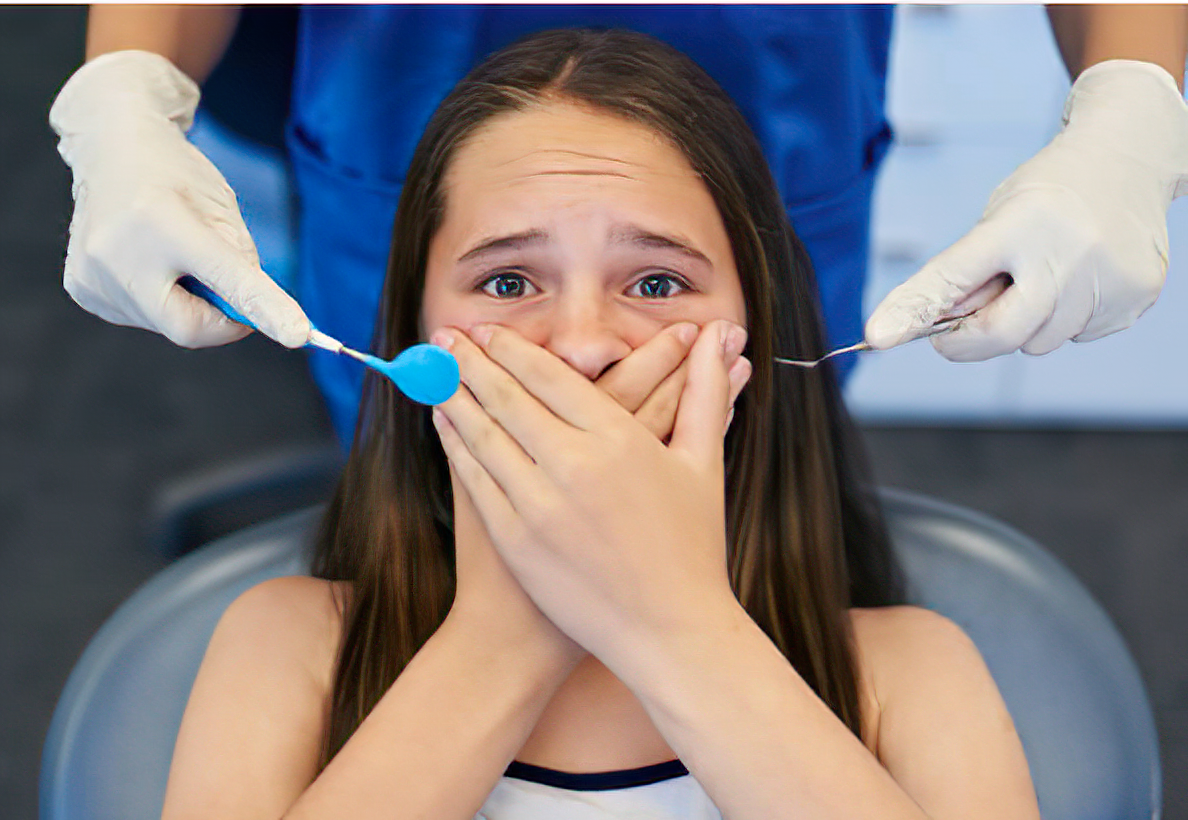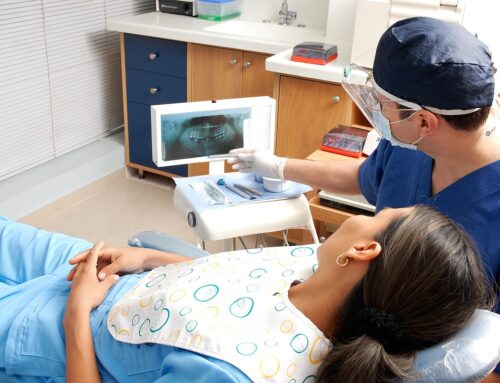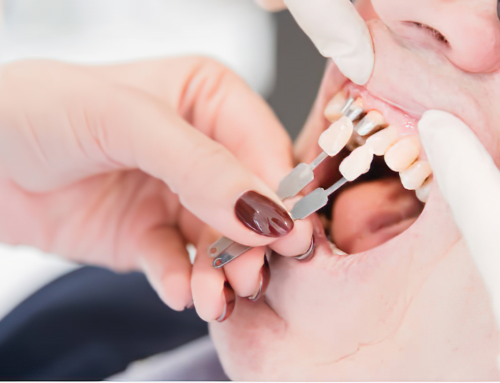Many people struggle with dental anxiety, leading to postponed or skipped dental appointments. At Manningham Dental Specialists in Melbourne, we’re dedicated to transforming dental visits into stress-free experiences. Discover our top strategies for overcoming dental anxiety and make your next visit the most comfortable yet. Say goodbye to fear and hello to a healthier smile with our expert tips!
What is Dental Anxiety?
Dental anxiety refers to the fear, stress, or discomfort associated with dental visits. This can stem from previous dental experiences, fear of pain, or concerns about dental procedures. It’s important to recognize that dental anxiety is a valid and common issue, affecting a broad spectrum of individuals.
Symptoms of Dental Anxiety
Recognizing the symptoms of dental anxiety is the first step towards addressing it. Common signs include:
- Nervousness or restlessness before a dental appointment

- Intense worry or fear about upcoming dental procedures
- Trouble sleeping the night before a dental visit
- Feelings of physical illness at the thought of visiting the dentist
- Difficulty breathing or panic attacks when thinking about dental care
- Excessive Sweating: A common physical response to anxiety, including during dental visits.
- Visible Distress or Crying: Especially prevalent in younger patients or those with severe dental fears.
- Avoidance Behavior: Procrastinating or consistently canceling dental appointments.
- Agitation or Irritability: Feeling uneasy or on edge in the dental office waiting room.
- Increased Heart Rate: A rapid heartbeat or palpitations when thinking about or undergoing dental care.
- Muscle Tension or Trembling: Physical signs of distress during a dental examination or procedure.
- Feeling Faint or Dizzy: Some patients may experience lightheadedness as a part of their anxiety response.
Tips for Overcoming Dental Anxiety
-
- Openly Communicate: Open communication with your dentist is crucial. By discussing your fears and concerns, we can tailor our approach to suit your needs, ensuring a more comfortable experience.
- Deep Breathing Exercises: Deep breathing exercises are effective relaxation techniques that help reduce anxiety. Practice these techniques before and during your appointment to help calm your nerves.
- Visit the Dental Office Before Your Appointment: Familiarize yourself with the environment to reduce fear of the unknown.
- Bring a Friend or Family Member: Having a trusted person with you can provide emotional support and reassurance.
- Use Distraction Techniques: Bring a book, listen to music, or use virtual reality glasses during your appointment to distract yourself.
- Schedule Your Appointment at a Less Busy Time: Quieter periods can feel less overwhelming and more personal.
- Ask About Pain Management Options: Understanding how pain is managed can alleviate fears related to discomfort.
- Seek Professional Psychological Help: In severe cases, therapy can be beneficial to address the root causes of dental anxiety.
- Gradual Exposure: Start with a simple check-up and gradually progress to more complex treatments as you become more comfortable.
How to Find a Dentist Who Understands Dental Anxiety
- Research Online Reviews and Testimonials: Look for feedback from other patients who have had similar anxieties.
- Ask for Recommendations: Friends or family members who also experience dental anxiety can provide valuable insights.
- Consult Local Dental Societies: They can often refer you to dentists skilled in dealing with anxious patients.
- Check for Special Qualifications: Some dentists have additional training in dealing with dental anxiety and phobias.
- Schedule a Consultation First: This allows you to meet the dentist and staff and gauge their approach to patient care.
- Ask About Sedation and Comfort Measures: Understanding a dentist’s approach to anxiety can be reassuring.
- Observe the Office Environment: A calming and welcoming environment is a good indicator of a patient-focused practice.
What to Expect During a Dental Appointment
Understanding what to expect can alleviate anxiety. We ensure our patients are fully informed about each step of their treatment, promoting a sense of control and reducing fear of the unknown.
- Reception and Waiting Area: Expect a warm welcome and a comfortable waiting area to help ease into the visit.
- Initial Discussion: The dentist will discuss your dental history, anxiety levels, and any specific concerns.
- Examination: A gentle examination of your teeth and gums to assess your oral health.
- Explanation of Findings: The dentist will explain their findings in understandable terms and discuss potential treatment options.
- Treatment Plan Discussion: If treatment is needed, they’ll explain the procedures, timelines, and answer any questions.
- Options for Comfort and Sedation: The dentist will discuss various relaxation techniques and sedation options.
- Scheduling Follow-Up Visits: Before leaving, you’ll have the opportunity to schedule any necessary follow-up appointments.
Relaxation Techniques for Dental Anxiety
Relaxation techniques such as:
- Mindfulness Meditation: Practice mindfulness to stay present and reduce racing thoughts.
- Progressive Muscle Relaxation: Tense and relax different muscle groups to release physical tension.
- Guided Imagery: Imagine a peaceful and happy place to divert your mind from anxiety.
- Aromatherapy: Certain scents, like lavender, can have a calming effect.
- Soothing Music or Sounds: Listening to calming music or nature sounds can help distract from dental sounds.
- Comfort Items: Bringing a comfort object, like a stress ball or a favorite blanket, can provide a sense of security.
- Positive Reinforcement: Reward yourself after a successful dental visit to build positive associations.
Sedation Dentistry Options
For those who need extra help, sedation dentistry offers various levels of sedation to make dental procedures more comfortable. From mild sedatives to more profound options, we provide safe and effective solutions.
- Nitrous Oxide (Laughing Gas): A mild sedative that helps you relax but remain conscious.
- Oral Sedatives: Pills taken before the appointment to reduce anxiety levels.
- IV Sedation: A deeper level of sedation administered intravenously for more complex cases.
- General Anesthesia: Used for extensive procedures, rendering you completely unconscious.
- Local Anesthesia: Numbs the treatment area to prevent pain during procedures.
- Customized Sedation Levels: We tailor sedation to your specific needs and anxiety levels.
- Pre-appointment Consultation: Discuss sedation options with your dentist to choose the best one for you.
How to Support a Loved One with Dental Anxiety
If you have a loved one struggling with dental anxiety, your support can be invaluable. Encourage open discussions about their fears and accompany them to appointments if possible.
- Listen and Validate: Acknowledge their fears without judgment and offer reassurance.
- Information Sharing: Help them gather information about the procedure to reduce unknowns.
- Accompany Them: Offer to go with them to their appointment for moral support.
- Discuss Relaxation Techniques: Share and practice relaxation techniques together.
- Post-Appointment Care: Be there for them after the appointment, whether it’s just listening or helping with aftercare.
- Encourage Professional Help: If their anxiety is severe, suggest they seek professional counseling.
- Celebrate Progress: Recognize and celebrate their bravery and progress in managing dental anxiety.
Embrace a Holistic Approach to Overcome Dental Anxiety at Manningham Dental Specialists
At Manningham Dental Specialists, we’re committed to providing a stress-free dental visit for all our patients. By employing these tips and working closely with our understanding team, you can overcome dental anxiety and maintain optimal dental health. Don’t let dental anxiety keep you from the care you need. Contact us to book your next appointment and experience the difference compassionate care can make.
We believe in a holistic approach to dental care, where understanding and addressing dental anxiety plays a crucial role. By embracing these strategies and working with a caring dental team, you can transform your dental experiences, ensuring your oral health remains a priority in a comforting environment.






Leave a Comments